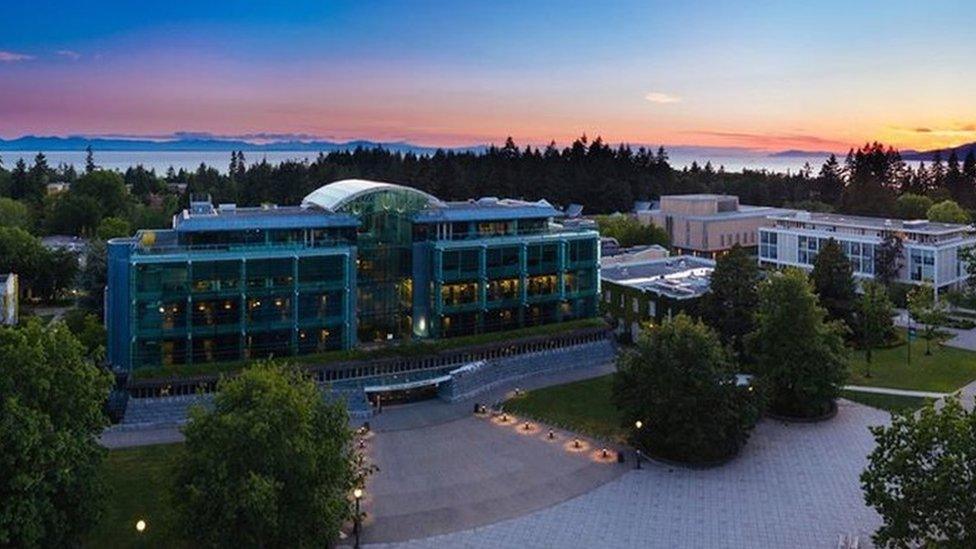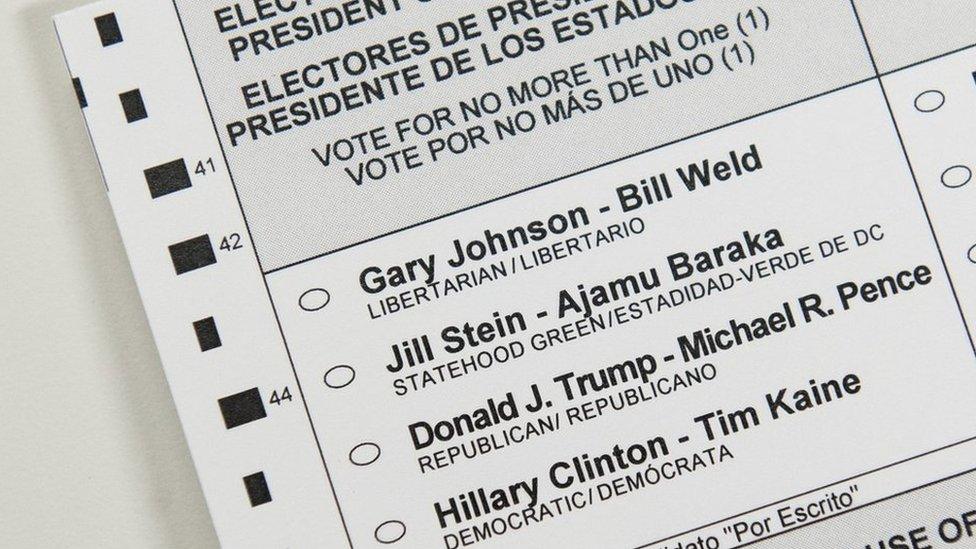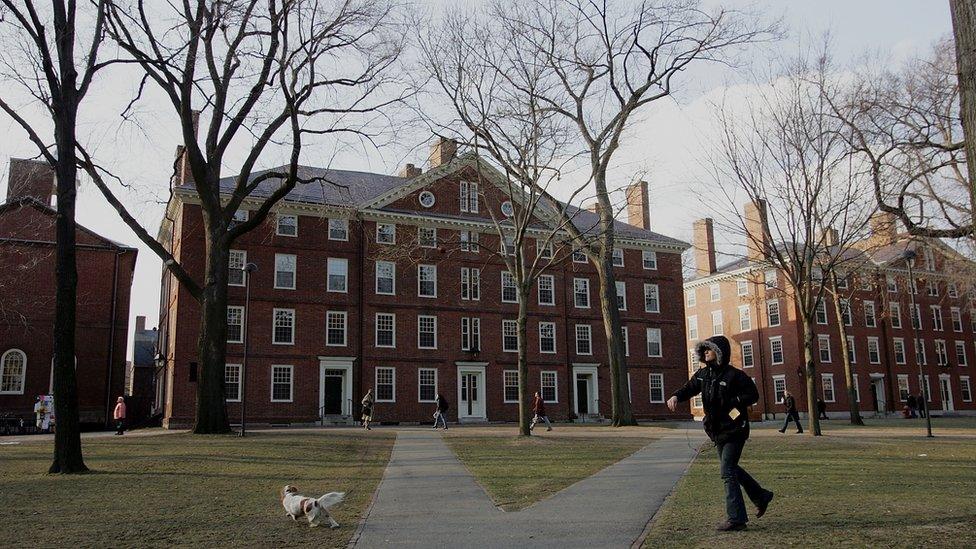Is 'Trump-effect' to blame for US students fleeing to Canada?
- Published

University of British Columbia has seen a growth of US applications this year.
Canadian universities have seen a rise in applications from US students since the election, school administrators say.
Visits to university websites also spiked in the weeks following the election.
Some attribute this rise to fears over Donald Trump's looming presidency.
But others say it has more to do with recruitment strategies and the growth of international education, than any political development.
While many celebrities had threatened to flee the US if Trump were to be elected, the biggest export may be students.
"If we live in a country where so many people could elect Donald Trump, then that's not a country I want to live in," 17-year-old Lara Godoff told the Associated Press.
Ms Godoff is applying to a number of Canadian universities, and she's not alone.
The University of Toronto saw a 70% increase in applications from the US this autumn, compared with the same period last year.
At McGill University in Montreal it was an increase of 22%.
US applications to the University of British Columbia in Vancouver increased by 44% compared with the same period in 2015.
McGill University registrar Kathleen Massey says it's too soon to be certain whether this phenomenon is because of the election.
"It is possible that the change in the American political landscape may be contributing to the increase in applicant numbers from the USA," Ms Massey said, but she couldn't confirm such a trend, "because we have not surveyed the applicants to ask them directly".
At Niagara Falls, debate about Trump
International applications, including those from the US, were up at many schools in Canada.
Ms Massey said there was also an increase in US applications last year, although not as pronounced.
Ted Sargent, vice-president international at the University of Toronto, attributes the "thousands" of applications coming from the US to both timing and strategy.
"We've been engaging in a kind of crescendo over the past couple of years," he told the BBC, but "evolution of the political landscape could be a factor as well".
Rhonda Lenton, vice-president academic and provost of York University in Toronto, also thinks international recruitment efforts have especially paid off this year.
Website traffic from the US to York's main recruitment webpage has grown 134%.
But, she says, the impact of the US election is difficult to ignore.
"On the one hand I can't necessarily attribute this increase to any particular political situation that might be happening in the US," Ms Lenton said.
"But this is a noticeable increase."
However, Graeme Menzies, director of recruitment for the University of British Columbia in Vancouver, says such numbers should be taken with a pinch of salt.
International recruitment at his school, like others, has been growing for years.
Reports of increased applications this cycle include those submitted before the election, and it's not clear whether the growth was spurred by Trump's win.
"That said, world events like the US election, Brexit, the global economy, regional conflict, currency fluctuations, and natural disasters are among the factors that consistently impact our recruitment plans and activities," Mr Menzies wrote in an email.
He said website traffic also increased in the days before the election, and subsided after it.
But beyond the geographic origin of the web visitor, Mr Menzies said, it's not known if those visitors were prospective students, parents or US citizens,
- Published30 October 2016

- Published3 March 2016
